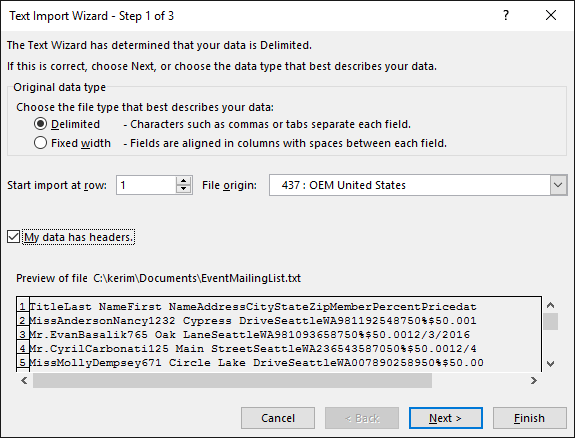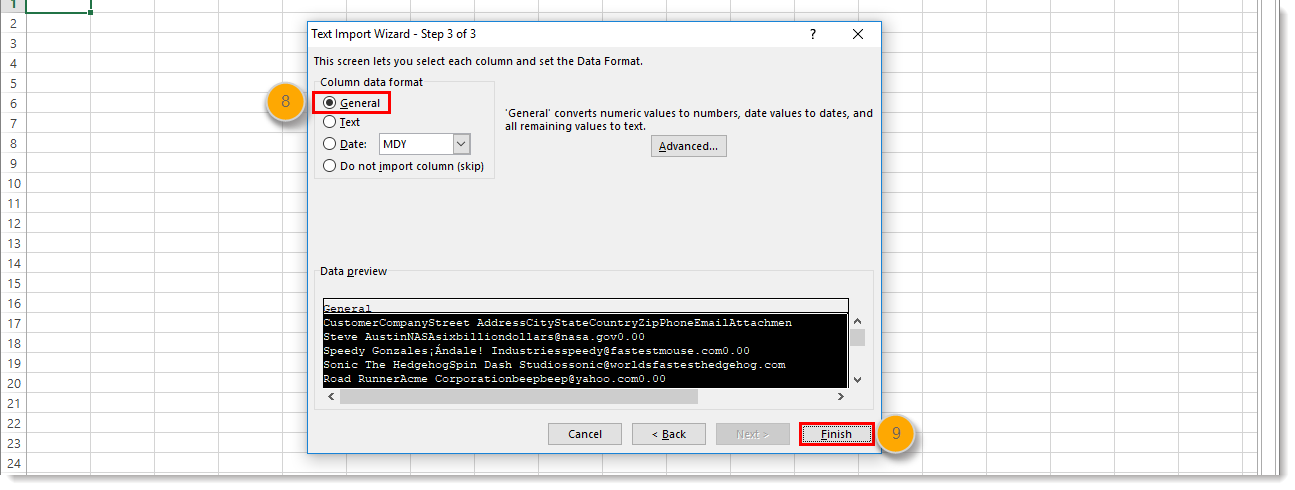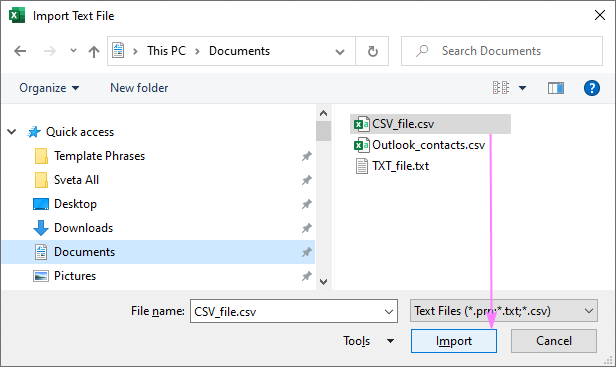

This is important since you are going to need these column names and datatypes while creating a new empty table in MS Access.

Step 1: Let say you have received the following sample data:Įxamine the files and list down the columns as well as the data type of the data under each field.īased on the data provided, list down the columns and the data types separately in a notepad/excel. So, lets get started with the steps required to start using this function to import data. It was significantly faster than the wizard and probably slower than any code – but at least I was not required to know or write any code. So, finally I came across a built-in Macro function in MS access that helped me to import the file. Further, I did not have much time or inclination to write a macro code to facilitate this import (major reason – I didn’t know how to!). So, one way of doing that was to import the data using the wizard under the “External Data” tab of the application but soon I realised that it was too slow. This way you would then have to work on just one big set of data. Now, instead of working on each of the 25 sheets individually, you want to import them into a single Access file. Let’s say you have received a set of data in 25 different spreadsheets.


In this post, you’ll learn about this in-built Macro function in MS Access to import data known as “ ImportExportSpreadsheet”. So, I started thinking of importing these multiple files into a single table of MS Access, then run queries as per my needs. When I went through the data, I realised I might have to add some helper columns to add some more details – but doing so in each and every spreadsheet was going to be too time consuming. So, the concerned data operator gave me the data in multiple spreadsheets (MS Excel) with each spreadsheet of significant file size running into 100s of MBs. While the data was available at a reasonable level of detail, it was too big to come in one spreadsheet. Recently, I had requested a big size of sales/inventory data from one of our internal team.


 0 kommentar(er)
0 kommentar(er)
